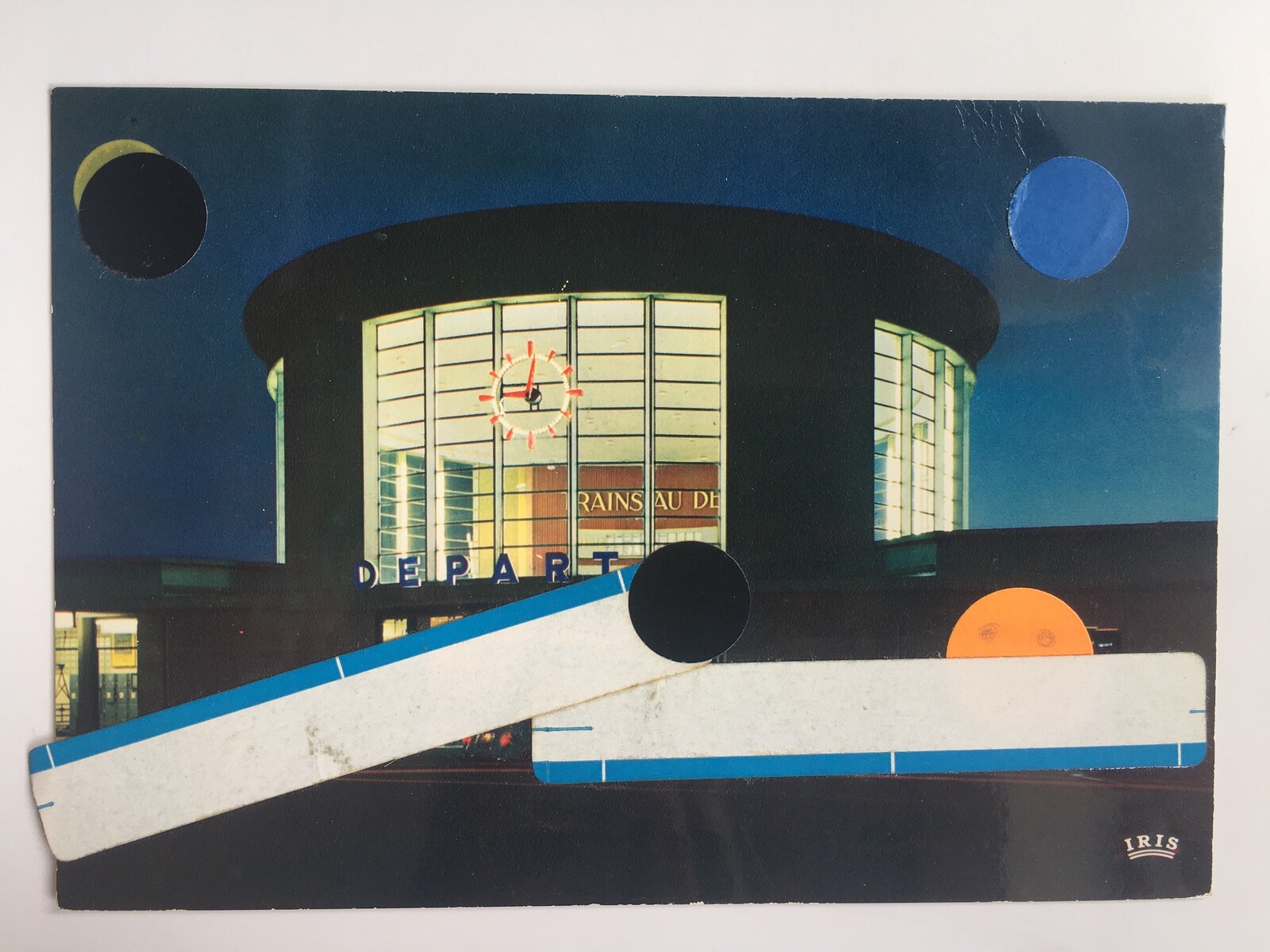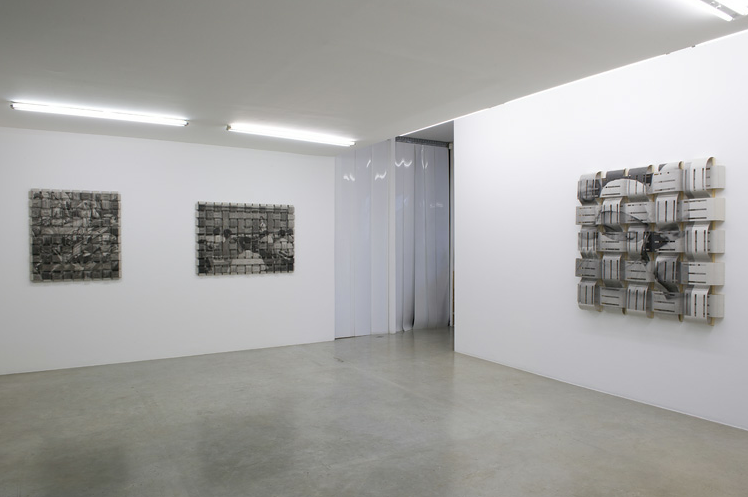Categories
Subjects
Authors
Artists
Venues
Locations
Calendar
Filter
Done
October 23, 2020 – Feature
Paris Roundup
Rachel Valinsky

Working in near-isolation in her Parisian bedroom-studio from the early 1970s until her death in 1981, the Alsatian artist Marcelle Cahn took an archive of old tourist postcards—the Eiffel Tower, a train station, a cathedral, a sleek white marble polar bear—and dappled them with shapes of varying sizes and colors. Displayed in the two-part group exhibition “Le plan libre – 1st chapter” at Jocelyn Wolff (the second part opens in early November), this modest intervention by an artist better known for her abstract paintings and collages feels anything but nostalgic: in isolation, one makes do with what one has.
In contrast to those galleries presenting artworks that either respond to the pandemic directly or were made during lockdown, oblique but timely approaches such as this stand out. Seeking to invert the limitations of confinement, this exhibition takes as its premise the titular architectural concept of doing away with interior walls to create one large open space—a conceit which plays out in the show’s uncluttered layout. Like Cahn’s delicate compositions, Georges Koskas’s dotted and lined geometric abstractions from the 1950s evoke the utopian, modernist aspiration to devise a universal pictorial language. Guy Mees’s sly, colored, cutout paper scraps from his …
March 13, 2015 – Review
Trisha Donnelly
Barbara Sirieix
Following the artist’s wish to have no reproductions of her work, this review will include no images.
No text? At Air de Paris, the press release is nowhere to be seen. This recognizable signature of Trisha Donnelly’s exhibitions is one of various measures to limit the documentation of her work: show and work titles are absent in the gallery space, and the dissemination of images outside it is very limited. This operation challenges a certain routine use of textuality as portal to interpretation. By forcing the viewer to move away from this process, the artist creates the conditions for the autonomy of the exhibition as experience. Stripped of text, the works are barren, and writing about them causes an embarrassing feeling of nudity. Nonetheless, these works call for a certain referentiality, but we have to look into the unbound, slimy matter of our memory in order to activate it.
On the night of the opening, viewers strolled in the dim, blueish light of Trisha Donnelly’s videos, the droning chatter of the crowd intertwining with reiterative pings coming from one of them, located at the back of the gallery. Amid the shadows, a drawing on paper (all works untitled; all works 2014) …
May 27, 2012 – Review
Thomas Bayrle
Lara Sarcevic

For his second exhibition at Air de Paris, Thomas Bayrle presented three series of works from different periods of his career. Following a logic of inverse chronology, the exhibition proposed a progressive dive into the history of Bayrle’s work, from his most recent grey cardboards to his more colorful paintings, resulting in a panorama of the meticulous aesthetic research that crosses the decades of Bayrle’s artistic practice. Crosses, or one should rather say, criss-crosses, for Bayrle’s approach is criss-crossed with one essential thread, namely his taste for interlacing, networks, and patterns directly inherited from his craftsman’s know-how: as a young employee of a weaving factory, he learned what would later become his trademark visual code delineating individual and collective experience.
The first pieces encountered were the loosely intertwined cardboard strips silkscreened with black-and-white photographs from iconographic propaganda material from Mao-era China. The pieces Workers (Sign for Earth) (2005), School (Sign for Container) (2005), and Barefoot Doctor (2004) presented three topical symbols of bygone communist societal ideals. Mountain Climber (Sign for Sun) (2005) took a more romantic turn on national glorification, depicting a high mountain landscape sprinkled with adventurous climbers.
Although the political intentionality of such images can be easily deciphered, Bayrle’s approach …